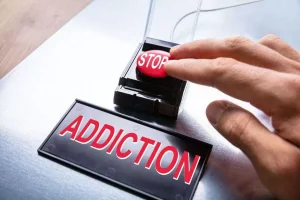
You will make yourself a better person and create a better life for yourself. A great way to stay motivated is to set both short-term and long-term goals. Setting goals and having “checkpoints” can keep you on track and give you rewarding feelings of accomplishment and progress toward a goal. Make sure goals are measurable (How do you know how close you are to achieving it?) and specific (Can you clearly define when your goal will be met?).
Struggling with an addiction?
Choose Ray Recovery to support you and help you maintain your motivation through recovery. Reach out to our team to learn more about how we can support you through recovery. When it comes to staying motivated in addiction recovery, self-care and mindset play a pivotal role. By understanding the importance of self-care and cultivating a positive mindset, individuals in recovery can harness the power of motivation to overcome obstacles and thrive on their journey to lasting healing.
Seek Out Helpful Motivation for Recovery Quotes
The following sections will delve deeper into each of these areas and provide actionable strategies you can apply immediately.
- It is often a long and bumpy path, and relapse is nearly inevitable—but that doesn’t spell the end of recovery.
- These treatment facilities provide tools to help individuals get sober and live healthier lives.
- And one measure of a comprehensive substance abuse treatment program is the help it offers to enrollees to identify their interests and find and build a meaningful career path.
- By using Soberlink, you can celebrate your sobriety and the positive changes you’re making in your life.
- Purchasing drugs from a dealer or alcohol from a nearby store can become a financial burden over time.
- In this section, we will explore effective strategies to keep your motivation intact.
Best Books About Addiction
A good relapse prevention plan specifies a person’s triggers for drug use, lists several coping skills to deploy, and lists people to call on for immediate support, along with their contact information. Addiction doesn’t just affect individuals; addiction is a family affliction. The uncertainty of a person’s behavior tests family bonds, creates considerable shame, and give rise to great amounts of anxiety. Because families are interactive systems, everyone is affected, usually in ways they are not even aware of. When a person goes into treatment, it isn’t just a case of fixing the problem person.
- Emily’s road to recovery began with an intensive outpatient program that helped her address not just her drinking, but also the underlying anxiety and self-esteem issues that fueled her addiction.
- In addition, friends and family are some of the most supportive groups we have in our lives.
- Financial troubles and problems finding and keeping employment are major triggers for relapse, but it is possible to take baby steps and get your finances in order.
Positive Recovery Quotes
Instead, set small, attainable goals that build momentum and provide a sense of accomplishment. Celebrating these small successes can help you stay motivated in addiction recovery. It is an internal drive and desire for change that comes from within. It’s the basis of sustained motivation on the journey to sobriety. This involves setting goals, finding purpose, and taking charge of positive choices. With intrinsic motivation, people are more apt to stay devoted and conquer obstacles.
Engaging with the sober support community
Also, recognizing the health effects of addiction can be a motivator. Understanding the damage addiction can cause can be a reminder to stay on track. Staying motivated in the recovery journey can be hard due to various reasons such as cravings, triggers, and setbacks. But, it’s key to comprehend that motivation can vary over time and requires consistent effort to sustain. Building a strong support system with family, peers in recovery, and counselors may significantly influence motivation levels. The help, understanding, and responsibility provided by this support network can help individuals stay motivated even in challenging times.

Understanding the long-term health effects of addiction is an awesome incentive for those pursuing recovery. Realizing substance abuse has lasting effects on physical and mental health can help people prioritize their well-being and make changes towards sobriety. This knowledge helps to highlight the importance of abstaining from drugs or alcohol to avoid further damage. Recognizing addiction’s severe consequences motivates individuals to stay committed during recovery. Setting realistic goals is another important strategy for maintaining recovery motivation. Setting unrealistic goals can lead to feelings of frustration and failure, which can undermine recovery motivation.
Reach out now and join our supportive

This article discusses the meaning of sobriety and arms you with information and strategies to smooth—and stay on—your path to wellness. Furthermore, external pressures from judgment, family dynamics, or financial strains can complicate the path toward recovery. These external factors might feed into feelings of inadequacy or embarrassment, undermining an individual’s https://ecosoberhouse.com/ drive to push for transformation. Additionally, the intricacies of life, such as work demands, relationship tensions, and health concerns, can erect hurdles to sustaining motivation in the face of adversity. The final step in 12-step programs like Alcoholics Anonymous (AA) and Narcotics Anonymous (NA) is to spread the message to other people living with addiction.
“The most common way people give up their power is by thinking they don’t have any.” ~ Alice Walker

It’s important to develop a structured daily and weekly schedule and stick to it. If PAWS is severe or if you’re experiencing prolonged symptoms, a medical professional can help you work through them and remain in recovery without relapse. The symptoms involved in PAWS can be a barrier to recovery if you’re not careful. In addition to being able to recognize them, it’s important to know when to seek help. Depending on the type of dependency, PAWS can last from six months to two years after you stop using drugs or alcohol. The change plan worksheet captures and organizes essential elements of a plan, including desired changes, reasons, steps, helpers, success indicators, and obstacles.